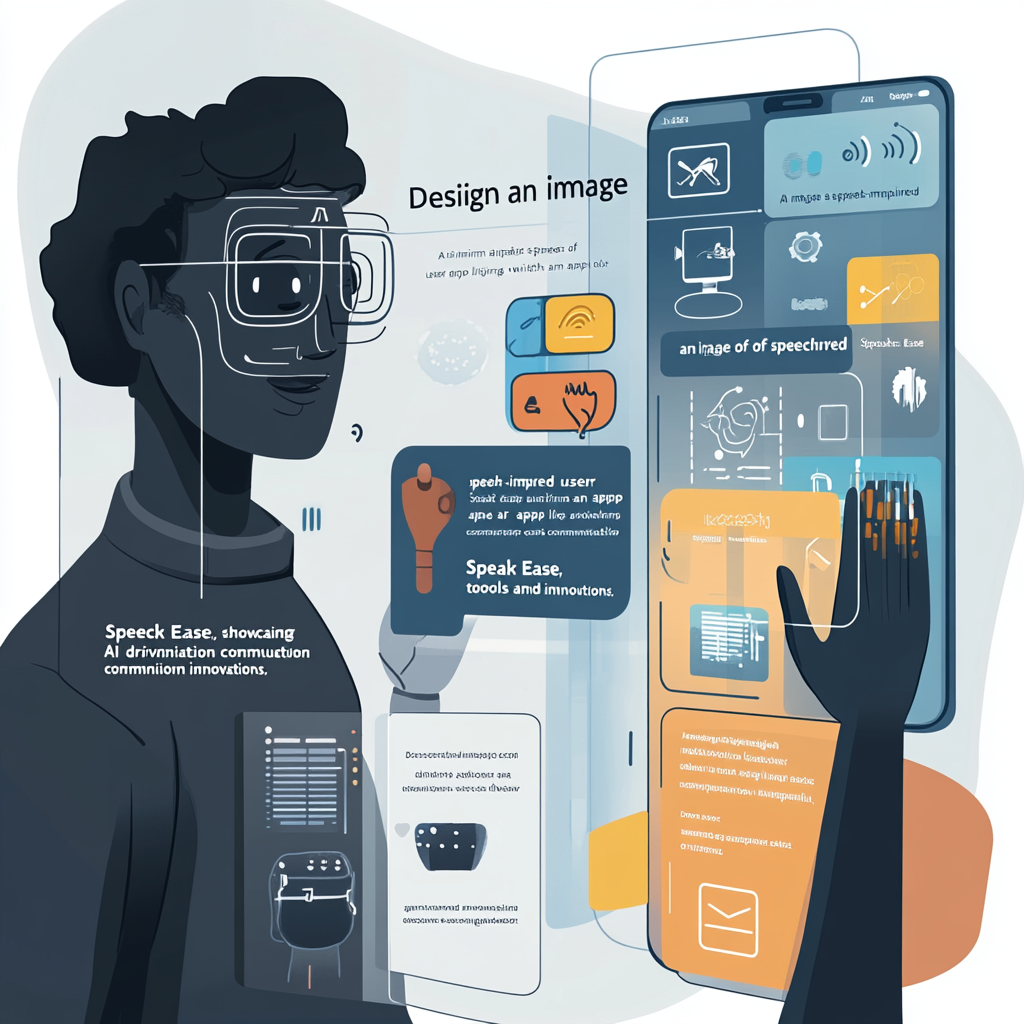
Researchers develop AI app to help speech-impaired users communicate more naturally
Imagine a world where your words flow effortlessly, where every nuance of your personality shines through your voice, and nobody's ever puzzled by what you mean. Sounds dreamy, right? For countless individuals around the globe grappling with speech impairments, this fantasy is inching closer to reality, all thanks to the relentless march of artificial intelligence. Picture this: researchers over at Northeastern University have conjured up a game-changing app called Speak Ease, and it's here to flip communication on its head for those who struggle to articulate their thoughts.
Now, let’s get real for a second. Traditional automatic speech recognition systems? They can be a right pain. They churn out voices so bland they might as well be robots running on batteries. They strip away the essence of what it means to communicate—your unique flair, your emotion, your humanity. Speak Ease, however, takes a radically different approach. By marrying advanced AI with insights from speech-language pathologists, this app empowers its users to have a voice… their voice. The magic isn’t just about transforming text into voice; it’s about letting individuals select whole phrases, edit transcriptions and sprinkle in emojis to reflect their moods. Want to beam warmth at your family? Go ahead and throw in a heart emoji. Need to sound all businesslike in a meeting? It’s got you covered. This level of customization is nothing less than revolutionary.
What sets Speak Ease apart from your run-of-the-mill communication apps? Simple: it’s not just about getting the words out but ensuring those words carry the weight of your personality and emotional undertones. Imagine a high-stakes medical consultation where clarity and emotional expressiveness are paramount. A flat, robotic voice can derail those precious moments. Speak Ease ensures that users can communicate authentically, enabling them to express exactly what they want, when they want, how they want. That’s empowerment in the truest sense.
Now, don’t get all cozy thinking Speak Ease is the only kid on the block. There’s also the quirkily ingenious Spoken app. This little miracle harnesses AI’s smarts to provide natural-sounding voices that articulate complex thoughts and feelings dynamically—like a musical score rather than a single note. By learning from how users typically converse, it essentially whispers the next words in their ear, letting them converse with a fluidity that feels just like a breeze on a summer day.
But hold on, the story doesn’t end there! Beyond apps, innovation is popping up in the form of wearable devices, like the fascinating “smart choker” from the University of Cambridge. No, it's not a fashion statement; it’s a tech marvel. This nifty gadget detects the micro-movements of your throat, enabling silent communication. Yes, you read that right—talking without making a sound! It’s a game-changer that's elevating communication and granting a sense of normalcy and confidence to those who, up until now, remained quiet in their struggles.
All these AI-driven innovations are fundamentally reshaping the landscape for individuals with speech impairments. Prioritizing emotional expression and personalization, technologies like Speak Ease and Spoken set the gold standard in assistive communication tools. As we witness the evolution of these tools, it's thrilling to consider the waves they’re creating toward a more inclusive society.
Imagine a future where communication isn’t a struggle but a joyful melody—a future that beckons just around the corner, fueled by AI. If such progress excites you as much as it excites me, don’t stay in the dark. Join the conversation—stay ahead of the curve and keep your finger on the pulse of AI innovation.
Want to stay up to date with the latest news on neural networks and automation? Subscribe to our Telegram channel: @channel_neirotoken.

